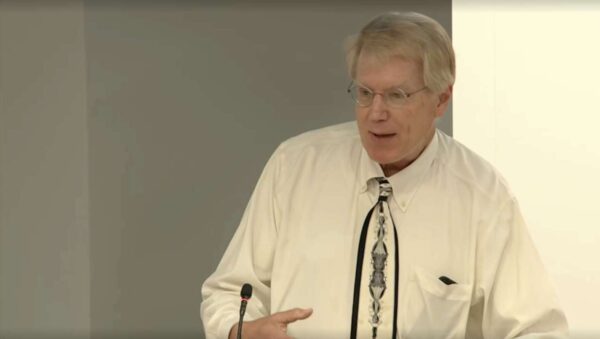
Arlington Public Schools appears to be looking for a new internal auditor.
The job posting comes after a national government auditors association told APS that the school system asked John Mickevice, the former internal audit director, to sign a problematic contract, per a letter obtained by ARLnow.
When reached for comment, Mickevice declined to discuss what happened but confirmed he is no longer with APS. The job listing for his former position was posted last Wednesday.
Before his departure, the Association of Local Government Auditors (ALGA) had written to the Arlington School Board, saying Mickevive was asked to sign a contract that conflicts with its own policies as well as best practices. The author — ALGA Advocacy Committee Chair Amanda Noble — confirmed with ARLnow that she sent the letter.
In response to questions about Mickevice’s job status and the letter, a spokesman for APS told ARLnow, “I don’t have any details and I can’t comment on personnel matters.”
According to the ALGA letter, dated as of late August, the contract would have allowed the Superintendent to terminate the Internal Audit Director without cause with 90 days of written notice. It also would have allowed the Superintendent to assign duties to the audit director.
Noble wrote that this conflicts with APS policy as well as with international auditor standards and government auditing standards from the U.S. Comptroller General.
Per APS policy:
The Superintendent shall oversee only day-to-day administrative matters such as authorizing the IA’s leave, travel or minor purchases. The IA shall otherwise be independent of the Superintendent’s supervision. The IA’s annual evaluation shall be conducted by the two School Board members of the Committee.
APS policy and international and national standards alike “protect the independence and objectivity of the internal audit function by placing the internal audit function outside the reporting line of areas subject to audit and preventing management’s interference in the auditor’s performance of work and reporting results,” Noble said.
In other words, such a policy is set up to ensure school officials do not influence the outcome of audits.
Noble says the auditor’s independence would be “greatly strengthened by clarifying district policy regarding appointment and removal of the [Internal Auditor] Director and changing the audit committee composition.”
Currently, the committee that directs the Internal Auditor Director and to which the auditor answers is made of two School Board members as well as the Superintendent and Assistant Superintendent. Half of voting members are management, which Noble says increases the chance of interference in the audit process.
Noble says that is not typical of most committees.
“In a recent internal audit benchmarking report prepared by the Council of Great City Schools, no respondents reported that their audit committee included the Superintendent or any member of management,” she said. “All respondents having an audit committee reported the audit committee composition was board members only, community advisors only, or a mix of board members and community advisors.”
The sending of the letter and Mickevice’s departure occurred less than a year after his scathing review of issues that plagued the Virtual Learning Program, which he said earlier this year was “an indigestible meal that is going to make you sick.”
The VLP needed more principals, teachers and specialized staff to meet the needs of students, while program leaders were slow to inform administrators of technology issues and teacher shortages, he said in July 2022.
School Board members accepted his report as a “learning” opportunity, taking some ownership for the problems but chalking others up to the pandemic. They are still discussing wither APS should stand up its own virtual option.
As of a Dec. 13, 2022 work session, some Board members are leaning away from APS continuing to explore creating its own virtual option. Instead, they have indicated some preference for school staff instead expanding on existing third-party online programs for “medically fragile students and families.”
In one of her last meetings before stepping down, now-former member Barbara Kanninen cautioned administrators against “developing a comprehensive program,” saying that work “would take away from some very important investments that are urgent that we need to make.”

